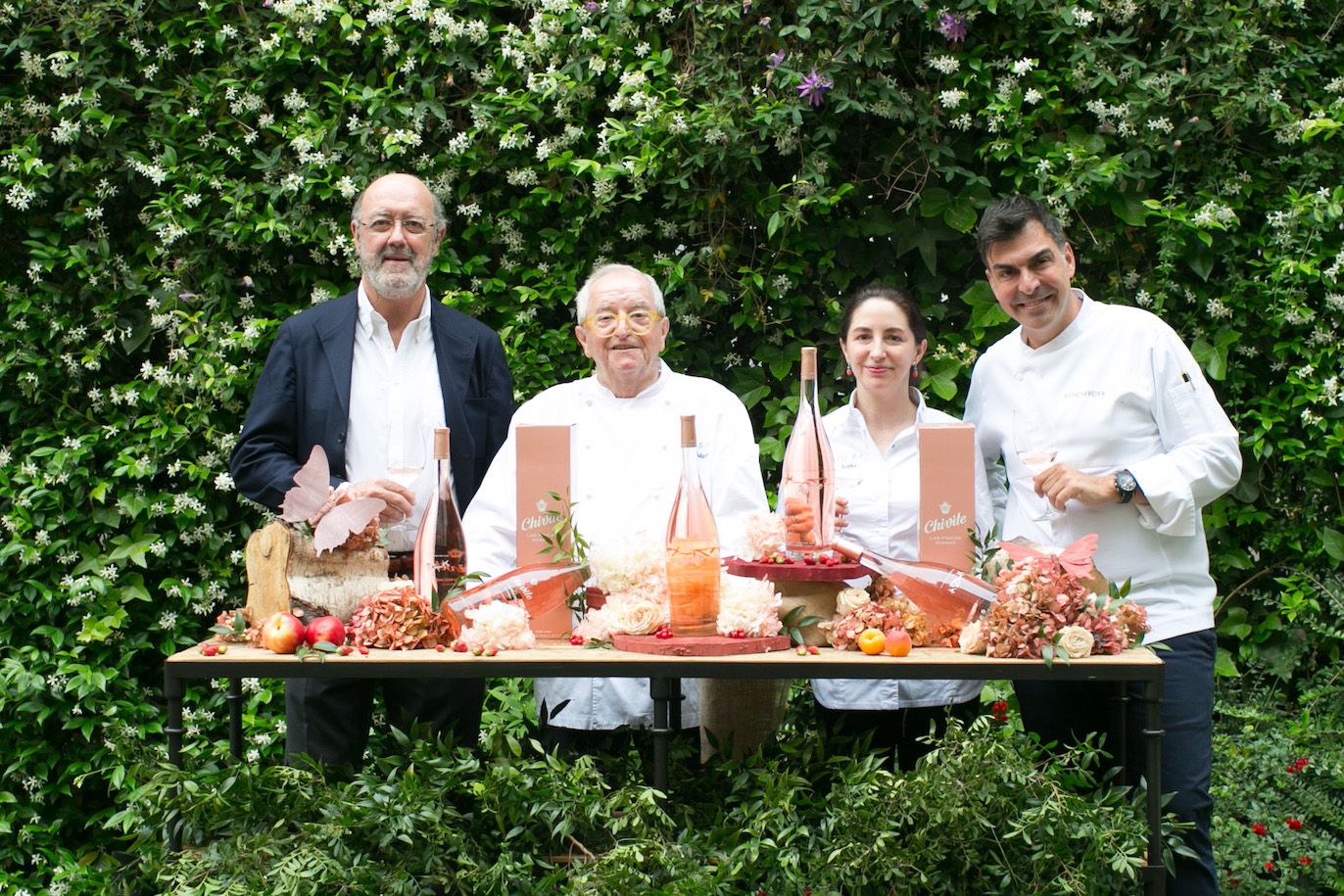Aged on its lees for six months, pale pink, cool premium-shaped bottle and bearing the name Arzak, we get the thinking behind what Chivite wants to call the ‘perfect’ rosé.
How many world-class chefs does it take to fête the arrival of a new rosé?
Well, it is perfectly possible to do the job with one or, at a push, none at all. But if you should have no fewer than three to hand why not press each of them into service?
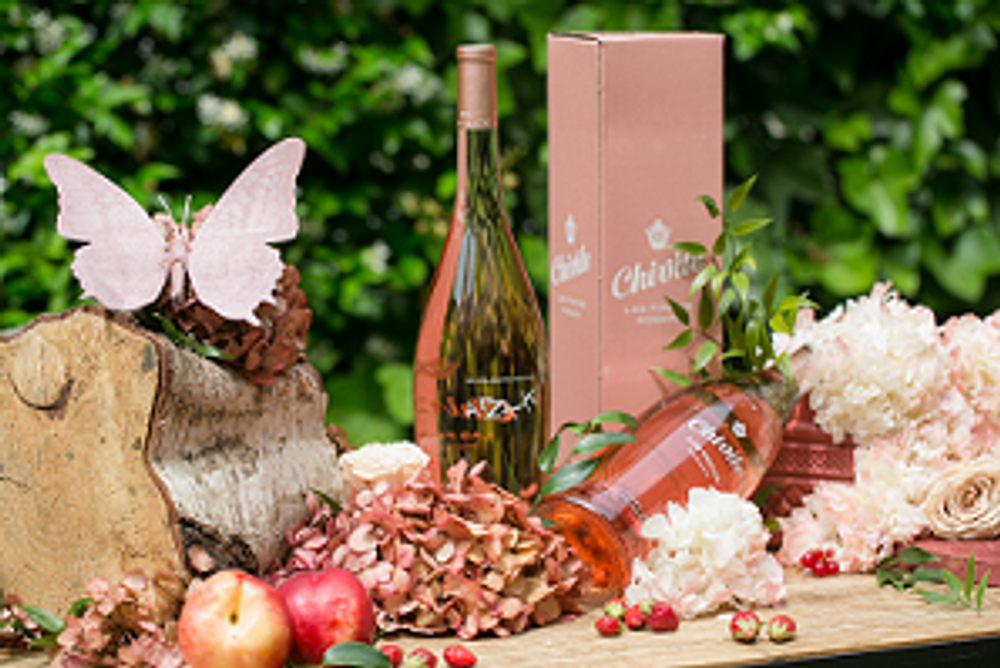
That’s the exuberant approach that Chivite Family Estates, with vineyards in the North of Spain, adopts in Madrid for the annual celebration of its new Chivite Las Fincas Rosado.
The event is styled a ‘garden party’ (a term appropriated from the Brits for the occasion) at the Hotel Único where Ramon Freixa has rustled up a special ‘light lunch’ in his Michelin-starred restaurant.
Also circulating among the city’s wine experts and foodies, enjoying the jazz and sunshine, are two other celebrity chefs. One is Juan Mari Arzak, 74, considered one of the great masters of New Basque cuisine and owner of the restaurant in San Sebastián that bears the family name and has earned three Michelin stars. The other is his daughter Elena, 47, who co-runs the restaurant and was named Veuve Clicquot best female chef in the world in 2012.
An embarrassment of riches.
Chivite’s vineyards lie about 80 kilometres south east of San Sebastián in Navarra. They already make a very serviceable rosada. But it’s handicapped by the strongish red colour, which in these faddish days doesn’t accord with what customers look for from a premium rosé: that pale translucent pink associated with rosés from Provence (I am guilty of loving that paleness too).
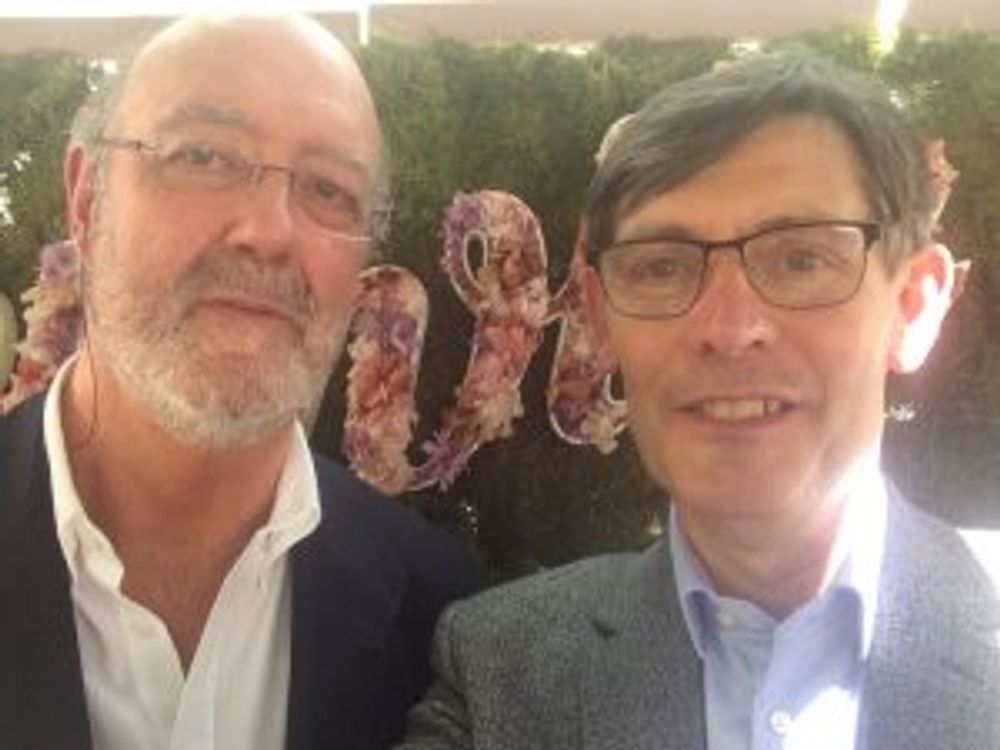
Julián Chivite (l) and Victor Smart
Apparently after conversations with Arzak père, Julián Chivite, executive president, took the decision to produce a wine whose quality would delight the taste buds and dazzle the eyes of a new group of customers.
Julián explains, “Juan Mari has always loved rosé wines. We began to conceptualise our perfect rosé, a wine we would always want to drink, and from there Chivite Las Fincas Rosado was conceived.”
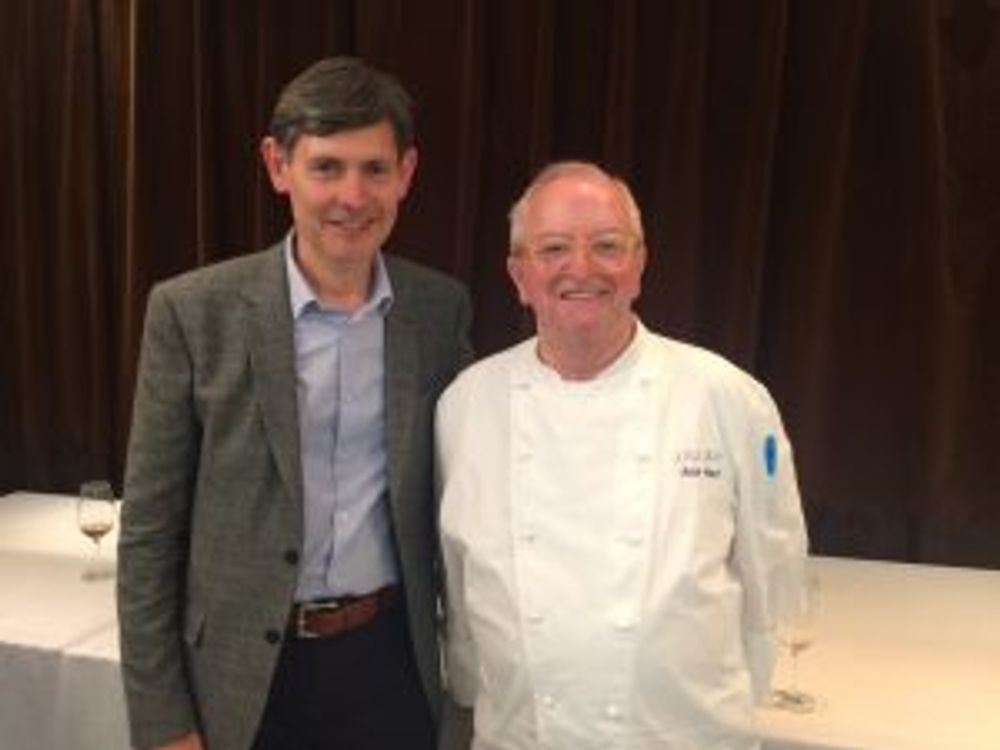
With Juan Mari Arzak
The new 2016 rosé is a blend of 54% Garnacha and 46% Tempranillo grapes grown on the Finca de Legardeta where, Julián maintains, “the Atlantic-continental climate and soil have always contributed to the characteristics of all of our wines”. Aged on its lees for six months before bottling, it is the first wine produced by Chivite Family Estates under the appellation of Indicación Geográfica Protegida Vino de la Tierra 3 Riberas.
Chivite has now produced three vintages. The Arzaks don’t simply attend the launch of the Rosado 2016, nor serve it in their hallowed establishments, but their family name Arzak sits alongside the brand Chivite on the bottle.
The pale colour of the wine belies the drink’s intensity with a good deal of fruitiness. Smooth and balanced it also has a satisfying mouth feel with an ABV of 13.5 %. With its cool bottle shape, akin to a ten-pin bowling skittle, the rosé seems certain to appeal to a well-heeled and comparatively youthful clientele, the sort that might otherwise have chosen spirits in a bar. The retail price in the UK is just under £15.
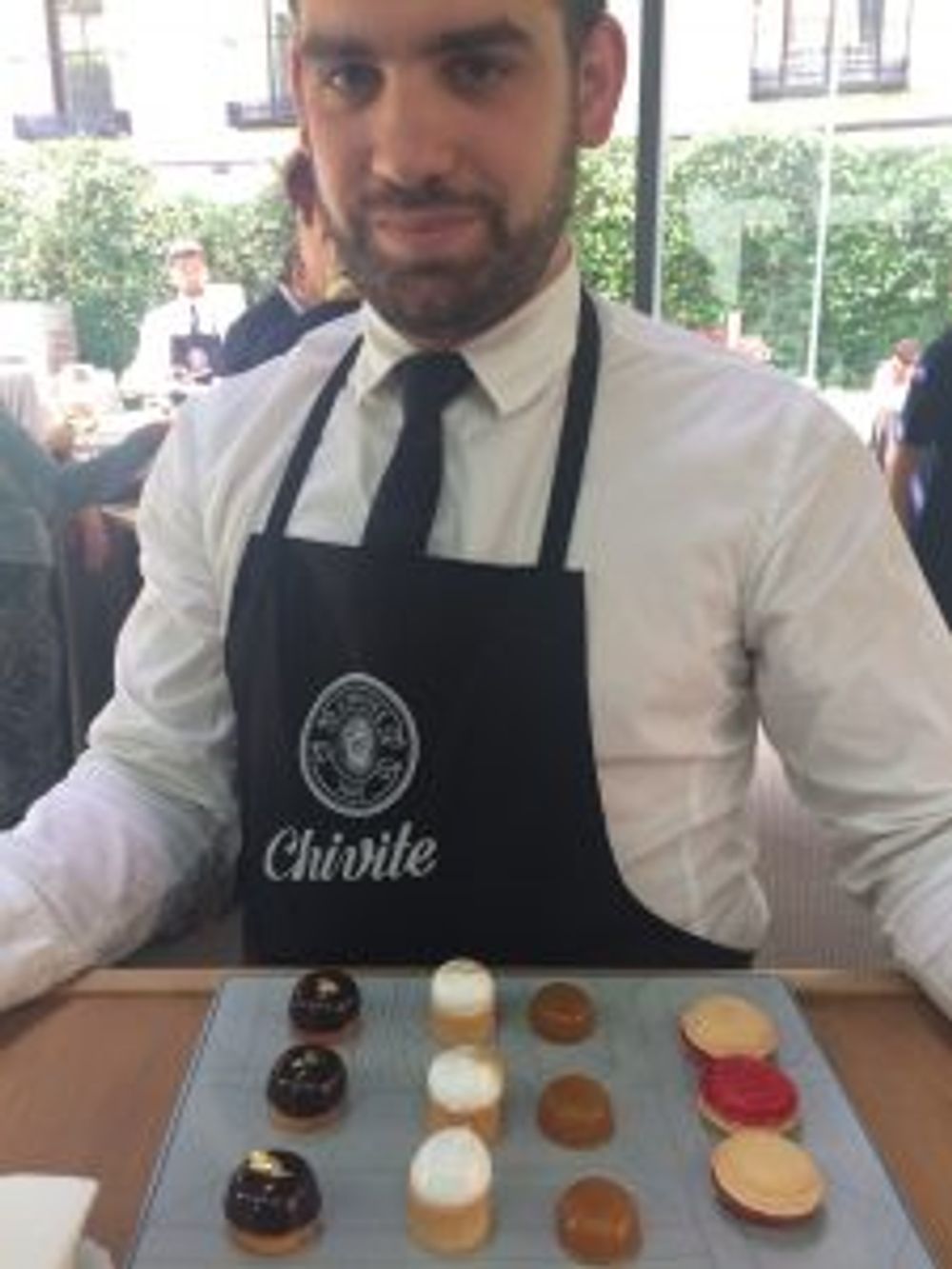
As the garden party guests chat in the sun, waitresses glide among us handing out ever more exotic morsels, including what look like tiny cellophane bags of fried seafood pegged out on a dinky washing line. We decide boldly the little bags must be edible which they indeed are. Thankfully.
We find that we are praising the ‘drinkability’ of the rosé and musing how that translates into Spanish – and, oddly, Dutch. Finally we see other guests are drifting away and we decide it is time too for us to leave this exalted company.
